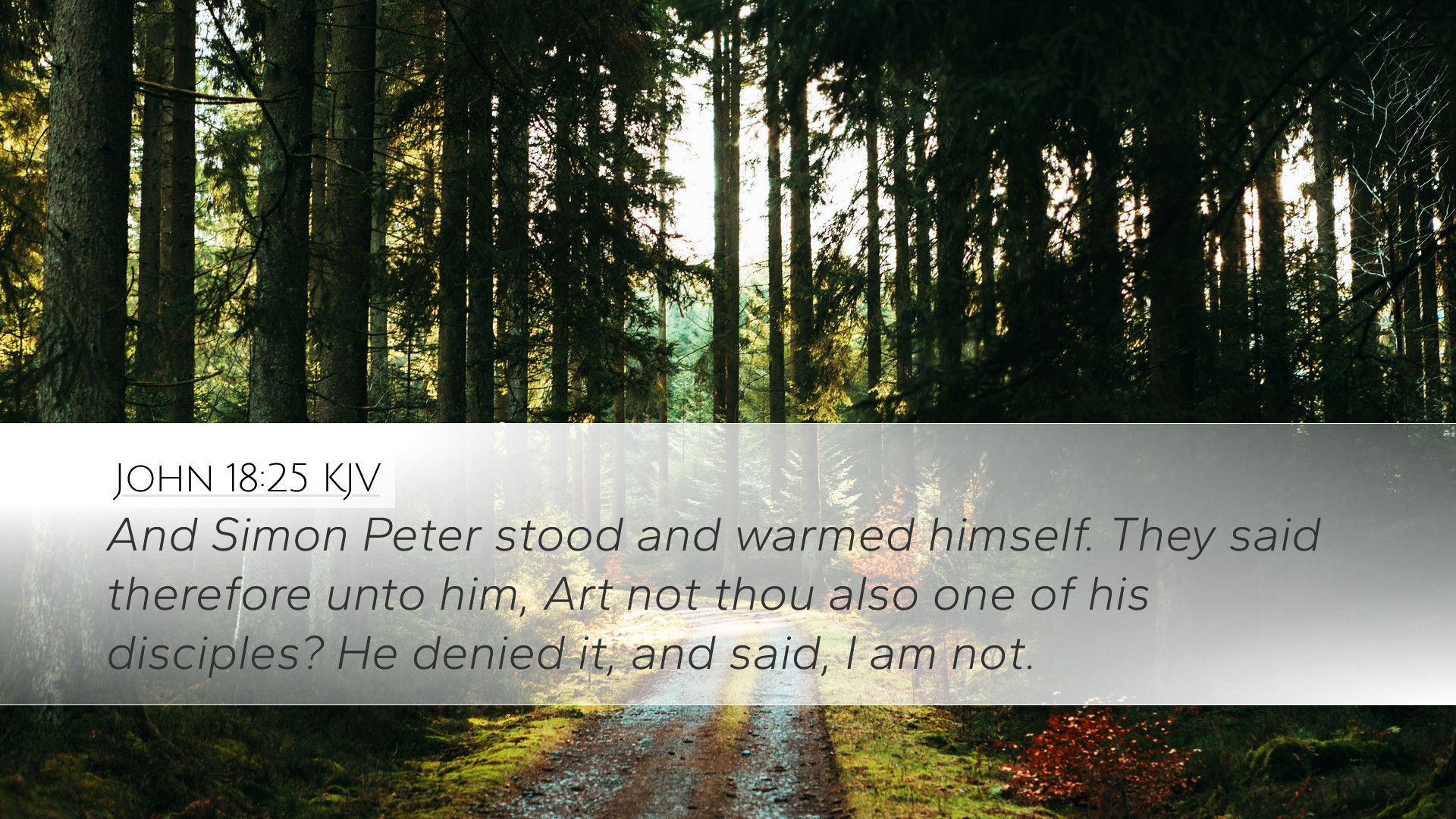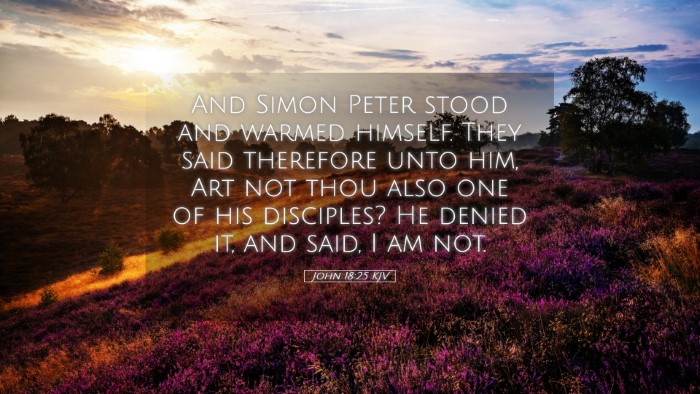Commentary on John 18:25
Verse: "And Simon Peter stood and warmed himself. They said therefore unto him, Art not thou also one of his disciples? He denied it, and said, I am not."
Introduction
The denial of Peter is a profound moment in the Gospel of John, revealing deep spiritual truths about human nature, fear, and faith. In this commentary, insights from renowned public domain commentators—Matthew Henry, Albert Barnes, and Adam Clarke—will be synthesized to provide a comprehensive understanding of John 18:25.
Contextual Background
This verse falls within the narrative of Jesus' arrest and trial. Peter's denial occurs at a time when fear and uncertainty grip the disciples. They watch as Jesus is led away to face questioning by the Jewish authorities, and Peter, following at a distance, finds himself in a precarious situation.
Historical Context
- Discipleship and Fear: The disciples were heavily invested in Jesus' ministry but were caught off guard by His arrest. This moment reflects their fragility as Jesus' followers amidst persecution.
- Cultural Implications: In the Jewish society of that time, being associated with someone accused of blasphemy brought severe societal and personal risks, intensifying Peter's struggle.
Verse Analysis
Peter's Actions
Henry remarks on Peter's choice to 'stand and warm himself'. This indicates a disposition of comfort in the face of danger—a metaphor for spiritual complacency. Barnes emphasizes that Peter's warming by the fire symbolizes a moment of temptation where he prioritizes physical warmth over spiritual allegiance.
Questioning of Peter
When others query Peter about his discipleship, it echoes the social dynamics of loyalty and betrayal. Clarke indicates that the question posed to Peter signifies not just curiosity but a cultural expectation for solidarity among disciples. The question serves as a test of Peter's faith amidst fear.
Denial of Discipleship
Peter's denials, “I am not,” point to a significant betrayal of his earlier vow to follow Jesus to the death. According to Henry, this reflects a fundamental human struggle to maintain integrity under pressure. Barnes adds that this denial reveals the conflict between Peter's brave self-perception and the reality of his fear-driven actions.
Theological Insights
Human Nature
This passage illustrates a universal aspect of human nature—the tendency to falter under pressure. Clarke notes that even the strongest believers may face moments of weakness, highlighting the necessity of humility and reliance on God’s strength rather than personal resolve.
Grace and Redemption
Though Peter’s denial seems like a definitive failure, it's crucial to recognize the overarching theme of grace. Henry emphasizes that forgiveness is inherent in Jesus’ interactions with Peter following the resurrection, indicating that failure does not separate us from God's love.
Application for Discipleship
This episode serves as a cautionary tale for modern believers. Barnes suggests that it urges Christians to remain vigilant and steadfast in their faith, while Clarke highlights the importance of community and accountability in standing firm amidst trials.
Conclusion
John 18:25 captures a poignant moment that speaks into the struggles of faith, fear, and the human condition. Through the insights of Henry, Barnes, and Clarke, we understand Peter's denial not merely as a failure but as part of the larger narrative of grace and redemption that calls every believer to reflect on their own faithfulness.
Reflection Questions
- How can we prepare ourselves to stand firm in our faith when faced with societal pressures?
- In what ways can we cultivate a community that supports each other in times of trial?
- What does Peter's experience teach us about the nature of grace and forgiveness in our spiritual journeys?


